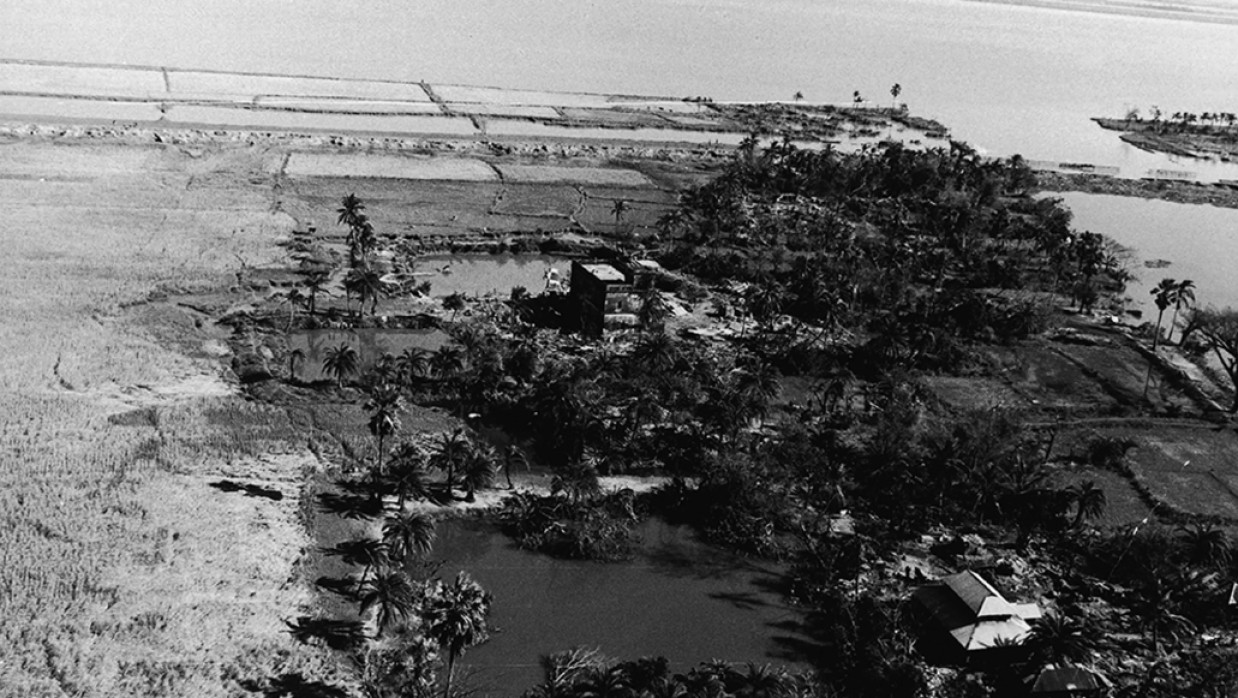
55 Years Since the 'Bhola Cyclone'
Storm Killed at least 300,000
- ১২ নভেম্বর ২০২৫, ১৩:২৫

Today marks 55 years since that fateful November 12. On this day in 1970, a devastating cyclone and tidal surge ravaged Bangladesh’s southern coast. In just a few hours of destruction, over a hundred thousand lives were lost. Thousands of villages were swept away, countless families wiped out.
It's hard to imagine several hundred thousand people losing their lives from a single tropical cyclone, but in November 1970, that is exactly what happened. (Note: A tropical cyclone is what we refer to as a hurricane in the Atlantic Ocean.)
The November 11, 1970 "Bhola Cyclone" moved into Bangladesh, then known as East Pakistan, and produced devastating storm surge flooding. The storm surge was estimated to be 20–30 feet high (some sources put this range even higher).
As a result, at least 300,000 people in the low-lying region near the Bangladesh coast were killed by massive flooding from the powerful cyclone. The actual number of people killed varies by source and could be as high as 500,000. Using either figure, this is the deadliest known tropical cyclone in history. Over 45 percent of the population of 167,000 in the Tazumuddin upazila was killed, according to NOAA.
This historic cyclone is regarded as one of the deadliest natural disasters in the world. Death descended overnight across vast coastal areas including Patuakhali, Bhola, Barguna, Bagerhat, and Noakhali. The tidal surge broke through embankments, flooding villages with seawater, washing away homes, crops, and livestock.
Many survivors still cannot forget the horror. Adam Ali Howladar from Shreerampur village in Dumki upazila of Patuakhali, and the family of Khorshed Akon from Lakshmipur village in Adabaria union of Bauphal—tears still flow in their homes.
An elderly survivor said, "That night, we only heard the roar of water and screams of people. Everyone was floating away before our eyes."
Every year on this day, grief and remembrance fill the hearts of coastal people. Prayers and supplications are offered in mosques and temples, candles lit in memory of the missing and deceased. Various programs are held at government and non-government levels.
The dreadful November 12 is not just a memory of one day—it is a symbol of the coastal people’s struggle to survive. It is also a day of indomitable strength in fighting nature. That is why coastal residents demand state recognition of Coastal Day.